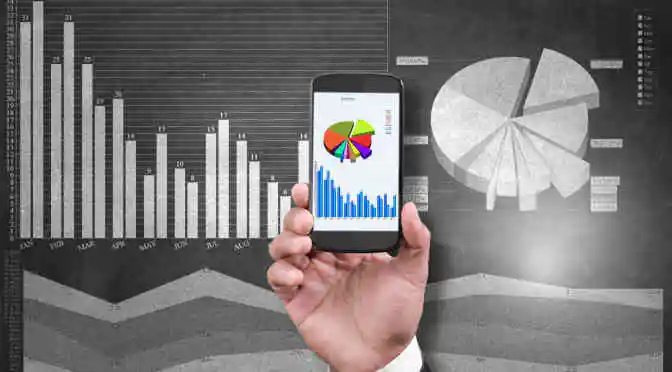M2M technology has made major headway in recent years because of potentially endless applications in numerous industries, but as the market stands, there is so much more that has yet to be accomplished using M2M services.
M2M services find their applications across various sectors such as Consumer Electronics, Energy and Utilities, Manufacturing, Logistics and Supply Chain, and Public Safety. The majority of the revenue for these services comes from applications such as smart grids, remote patient monitoring, traffic management, POS, telematics, asset tracking, fleet management, and surveillance. This revenue is expected to see a marked increase in the coming years.
The Global M2M Services Market is expected to grow rapidly during the forecast period at a CAGR of 24.27 percent from 2014-2019.
Here is a breakdown of the opportunities for M2M technology across several industries:
Healthcare
The Healthcare industry is a major end-user in the Global M2M Services market. Aging population, high life expectancy rates, and increased number of patients suffering from mental and chronic disorders have widened the scope of M2M services in this industry. The major M2M healthcare applications include:
Home Monitoring
Patients can self-test through the use of this application and send the collated data from the test to their healthcare providers. Most chronic diseases such as ischemic diseases, diabetes, sleep apnea, COPD, hyperlipidemia, and asthma can be monitored in a home environment through the use of this application. The treatment for these chronic diseases is expensive; however, home monitoring provides cost-effective ways to monitor and control these diseases.
Telemedicine
It becomes highly cumbersome for doctors to monitor each and every patient, especially the ones located in remote areas and villages. Telemedicine allows doctors to monitor the health of their patients from a remote location. Portable devices, wearable devices, and sensors are used to track the location of patients and remotely monitor their health.
Asset Management
Mobile healthcare equipment can be easily tracked with the help of connected health M2M services. Effective management of healthcare assets helps toward increasing efficiency, which helps reduce costs.
Clinical Remote Monitoring
Clinical remote monitoring helps to track and monitor the health of patients suffering from mental and chronic disorders. Clinical health monitoring helps reduce home visits of doctors, thereby reducing associated costs.
Connected Medical Environment
M2M solutions help in the tracking and monitoring of vital signs during exercise and also transmit the data to the servers on a real-time basis. These data provide valuable insight to patients about their health condition. Patients can share these data on social networking websites.
Assisting People with Disabilities
Connected health M2M provides personalized, real-time services that help people with disabilities. For instance, M2M devices can be used to create reminders for people suffering from disabilities such as dementia and Asperger’s syndrome, which help them manage their daily routines more effectively.
Retail
M2M devices, sensors, and applications are widely used in the Retail industry. Many retail giants worldwide have started to adopt M2M services and big data analytics to improve their overall business efficiency and to get a better understanding of consumer preferences. Some major applications of M2M in the Retail sector include:
- Fleet management
- Inventory monitoring
- Wireless and wireline POS
- Real-time wireless payment solutions
- Digital signage
Automotive
M2M services have evolved over the years. Germany, Japan, the US, and China have started to adopt M2M services in their automotive industries. The concept of the connected car is based on M2M technology. Automobile providers such as Nissan, BMW, Toyota, Ford, and Cadillac have started to forge partnerships with other M2M platform providers to enable provision of connected car M2M services to consumers.
Major applications provided by M2M in the Automotive industry are telematics services, smart routing, real-time traffic updates, roadside assistance, parking management, usage-based insurance, and entertainment services inside vehicles.
Agriculture
M2M services are also used in farming to enhance overall efficiency and productivity. M2M technology helps in the monitoring of agricultural equipment such as tractors, harvesters, and tanks. It provides weather-related information to farmers, which helps them in taking well-informed decisions on the sowing of seeds and crop harvesting. Technologies such as RFID passive tags are used in dairy farms to monitor the number of cows. Some key benefits of M2M services in agriculture include:
- Remote control and monitoring of agricultural equipment
- Reduction of costs
- Provision of real-time agriculture-related information to farmers
Manufacturing
The major applications of M2M services in the Manufacturing sector include:
- Remote monitoring of manufacturing equipment
- Provision of real-time status of manufacturing equipment, which helps in timely repair and prevention of breakdowns
- Frequent exchange of data among equipment and effective control of various underlying applications
- Improvement in process flow inside manufacturing plants and enhancement of overall operational efficiency
Energy and Utilities
M2M services are used in the Energy and Utilities sector for deployment of smart and connected devices. Major applications of these services include smart metering, smart grids, intelligent fault management systems, and intelligent switching.
Home Appliances and Consumer Electronics
M2M services are widely used in the Home Appliances and Consumer Electronics industries. Major applications of these services in home appliances and consumer electronics include:
- Connected home M2M services
- Smart meters
- Home security
- Home automation
- Medical monitoring inside home
- Home energy management systems



